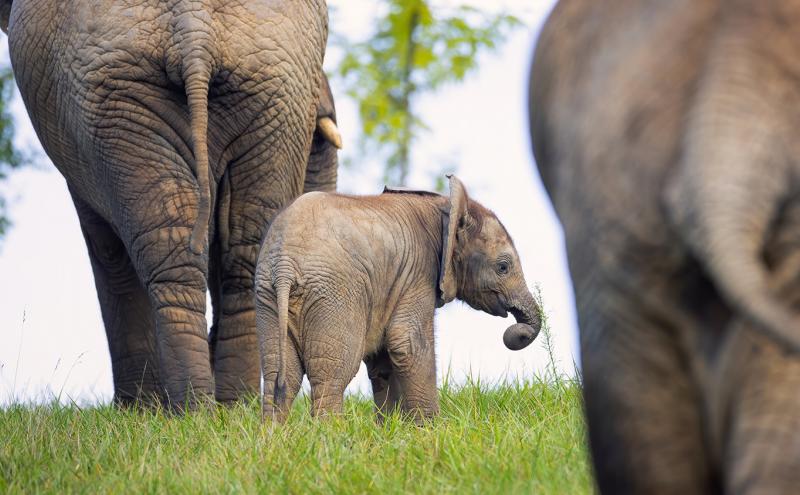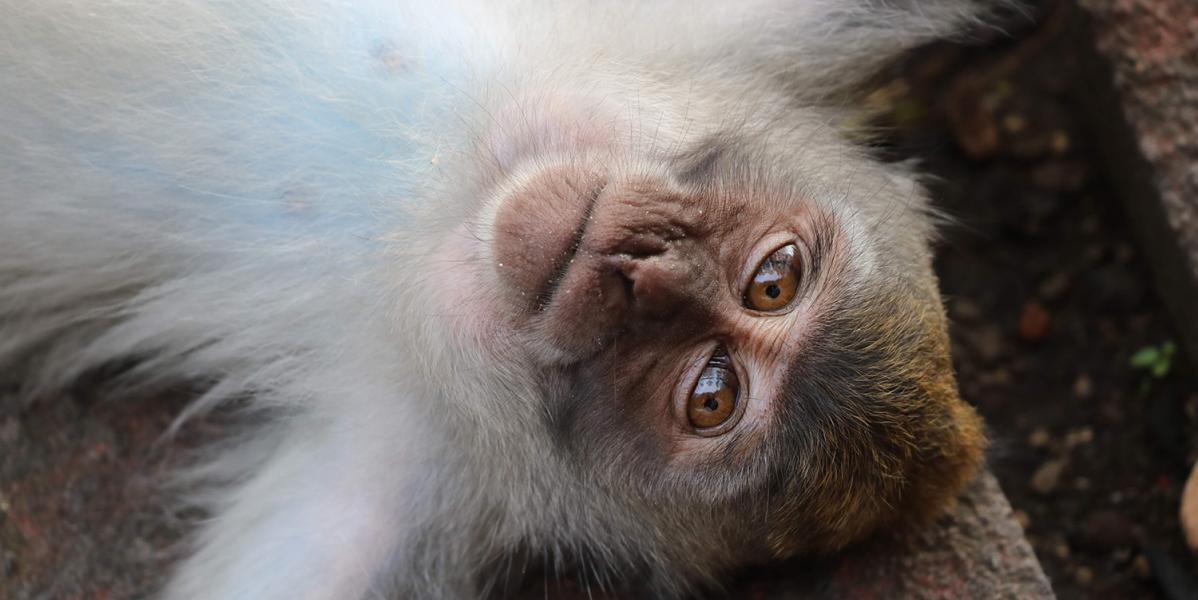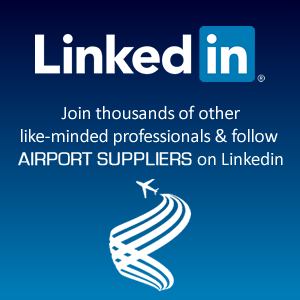Savvy Travelers Can Stop Wildlife Trafficking from SEA Airport and Beyond
| Company | Seattle Tacoma International Airport (Sea-Tac) |
|---|---|
| Date | 26.05.2022 |
First-of-its-kind educational installation empowers international travelers to prevent wildlife trafficking in how they shop, eat, and experience while abroad.
 Seattle-Tacoma International Airport (SEA), the Association of Zoos & Aquariums’ Wildlife Trafficking Alliance (WTA), Woodland Park Zoo, Point Defiance Zoo & Aquarium, and Northwest Trek Wildlife Park are partnering to unveil a first-of-its-kind interactive installation to help stop wildlife trafficking. Arriving just in time for the summer travel season, recovery of international travel, and the opening of the airport’s new International Arrivals Facility, the educational display empowers international travelers to prevent wildlife trafficking in how they shop, eat and experience while abroad. Located across from Gate S1, the display is in the S Concourse, SEA’s hub for departing international flights.
Seattle-Tacoma International Airport (SEA), the Association of Zoos & Aquariums’ Wildlife Trafficking Alliance (WTA), Woodland Park Zoo, Point Defiance Zoo & Aquarium, and Northwest Trek Wildlife Park are partnering to unveil a first-of-its-kind interactive installation to help stop wildlife trafficking. Arriving just in time for the summer travel season, recovery of international travel, and the opening of the airport’s new International Arrivals Facility, the educational display empowers international travelers to prevent wildlife trafficking in how they shop, eat and experience while abroad. Located across from Gate S1, the display is in the S Concourse, SEA’s hub for departing international flights.
The installation invites travelers to be good stewards of global animal populations and follow the law with a pledge to be a “savvy traveler” who makes choices that help save endangered animals around the world. The contents of the display share examples of confiscated illegally trafficked materials and information about how animal species are in decline due to illegal wildlife trade. It also shares the positive impacts of conservation and educational efforts. The wildlife artifacts were selected to highlight the diversity of items that travelers may encounter. Some wildlife items were paired with sustainable look-alikes to highlight the existence of legal alternatives and the challenges of identifying wildlife products without knowing the right questions to ask.
“Travelers care deeply about the places they choose to visit but are sometimes unaware of the inadvertent impacts of their actions and how they can be avoided,” said Port of Seattle Commissioner Fred Felleman. “The Port is proud to display the Savvy Traveler exhibit to elevate the awareness of millions of international travelers who pass through the airport annually so people know how they can make a difference. This installation helps us learn how to shop for legal, ethical souvenirs, eat sustainably, and to photograph wildlife responsibly. We all must do our part to safeguard endangered wildlife and marine life around the world, as well as right here in Washington. I encourage everyone to take the savvy traveler pledge before your next trip.”
“Wildlife trafficking is decimating animal populations and supporting international criminal syndicates around the globe,” said Dan Ashe, President and CEO, Association of Zoos & Aquariums. “AZA’s Wildlife Trafficking Alliance is honored to partner with this consortium on making the installation a reality. Because demand for trafficked wildlife and wildlife products is driving thousands of animals toward extinction, consumers hold the key to ending the scourge of wildlife trafficking. By putting our actions in line with our values, we can work together to protect treasured species for the benefit of our planet, our security, and future generations.”
“As a zoo, we’re working to preserve and protect endangered species. But we don’t want the only place for these animals to exist to be in zoos,” said Woodland Park Zoo President & CEO Alejandro Grajal. “Wildlife trafficking isn’t just about smuggling animals across borders. It can be inadvertent and subtle, and we can all contribute to the solution by thinking about what we purchase, eat and photograph. When we work together to protect animals, we create a sustainable planet for us all because the health and survival of wildlife is directly connected to the health of our global ecosystems.”
“When we care about wildlife, we take action to protect it today and for future generations,” said Alan Varsik, director of Point Defiance Zoo & Aquarium and Northwest Trek Widlife Park. “Some examples of illegal wildlife trade, like elephant ivory and rhino horn, are well-known while others, like tiger bones and radiated tortoise shells, are not. Yet the impacts are equally devastating and threaten the survival of too many endangered species around the world.”
“The illegal wildlife trade is estimated to generate $20 billion USD annually in illegal proceeds,” said University of Washington Center for Environmental Forensic Science Co-Executive Director and Professor of Biology Dr. Sam Wasser. “The illegal ivory trade is estimated to generate $4 billion annually. Most of the smuggled ivory consists of whole, unworked tusks. The tusks are bought and stockpiled by investors who appear to be banking on elephants going extinct so that ivory can once again be legally sold. While law enforcement plays a critical role in stopping illegal trade, the ease with which large volumes of ivory can be moved across the world makes it unlikely that law enforcement can stop the trade on its own. The only sustainable solution is to permanently eliminate demand. Please helps us achieve that goal.”

The installation at SEA is a pilot project for AZA’s Wildlife Trafficking Alliance, which will be followed by two additional exhibits in 2022 at key U.S. airports. Pending project evaluation, WTA will seek additional exhibits in subsequent years in the U.S., and beyond.
Additional partners supporting the SEA installation include the Washington Department of Fish and Wildlife and the University of Washington Center for Environmental Forensic Science.
Savvy and sustainable
Around the world, including in the U.S., endangered wildlife is for sale as products, exotic pets, and tourist attractions. The savvy traveler knows that just because something is for sale, it does not mean it’s legal or ethical to purchase. If we do not act quickly, wildlife trafficking will wipe out many endangered species in our lifetime. Wildlife trafficking fuels criminal networks, destabilizes governments, incites corruption, and threatens human and animal health through the transmission of diseases.
Each panel of the display focuses on a single activity – shopping, dining, and experiences – and provides tips on how to avoid illegal wildlife products. Featured actions are ones all travelers can take to help end the illegal wildlife trade such as asking about the origin of an item or dish before purchasing. The wildlife artifacts featured in the display were specifically selected to highlight some commonly available products and show the diversity of items you may encounter while traveling. Some of the items are paired with sustainable lookalikes. These examples show legal alternatives and demonstrate how challenging it can be to identify wildlife products without knowing what questions to ask. All of the wildlife products in the display were confiscated by authorities in the state of Washington.
 Shop for good, not trafficked goods
Shop for good, not trafficked goods
Your purchasing choices matter. Avoid products made from endangered species, such as elephant ivory, sea turtle shell, or fur from tigers and spotted cats. Pay close attention to materials used from wildlife, like exotic skins and leather, and coral. And be sure to ask about an item’s origin before buying.
Eat well, not wild
Discover new delicacies but look out for products made from endangered species. Avoid shark fin and turtle soups and say no to medicines and herbal remedies that contain tiger bone, rhino horn, pangolin scales, or other illegally obtained ingredients. Ask about ingredients and their sources when you consume something unfamiliar.
Take memories, not selfies
Be amazed by the wildlife you see on your travels but be wary of people who offer selfies and petting opportunities with animals. Before you sign up for a wildlife tour or encounter, or visit a roadside animal attraction, make sure the vendor is accredited and reputable.
Take the pledge
We need your help to stop wildlife trafficking at home and while traveling. Pledge today to make choices that help save endangered animals around the world.
Learn more at SEAsavvytravel.org.
Contact
17801 International Blvd
Seattle
Washington
United States
WA 98158
- +1 206-787-5388

